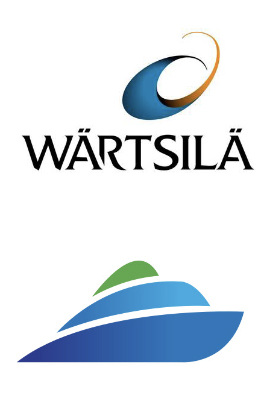 Technology group Wärtsilä said Nov. 28 that it has signed an agreement to provide its fleet electrification and systems integrator services for a project to build the first zero-emission high speed ferries in the U.S.
Technology group Wärtsilä said Nov. 28 that it has signed an agreement to provide its fleet electrification and systems integrator services for a project to build the first zero-emission high speed ferries in the U.S.
The fully electric vessels are being built for San Francisco’s Water Emergency Transportation Authority (WETA), the operator of the San Francisco Bay Ferry system.
Wärtsilä has said that the project, and several others that it will work on under the partnership, are a part of the agency’s Rapid Electric Emission-Free (REEF) Ferry Program, a phased decarbonization of high-speed, high-capacity ferry service in the San Francisco Bay.
“Wärtsilä’s track record with hybrid and zero emission ferry projects, as well as its expertise acting as an integrator for the delivery of hybrid and fully electric propulsion solutions were key factors in the company’s selection as a project partner,” the company said in a statement.
Wärtsilä explained that it would work within the WETA project team to finalize vessel and charging system concepts.
“We’re proud to operate the cleanest high-speed ferry fleet in the nation, but a zero-emission future for our system is within reach,” WETA Executive Director Seamus Murphy said in a statement. “Wärtsilä’s expertise and experience will be incredibly valuable given the complexity our ferry decarbonization program entails.”
“This is a major project within the maritime sector’s journey towards decarbonization, and we are proud to be a part of it,” Wärtsilä Marine Power Sales Director Hanno Schoonman said.
“Wärtsilä joins an industry-leading team tasked to develop newbuild battery electric vessels that combine innovative technology and sustainable practices,” Schoonman added. “Wärtsilä is well qualified to provide this project support. This agreement is a clear endorsement of our strong track record in systems integration and emission-free propulsion.”
After completing the conceptual phase, WETA is expected to move on to the initial construction phase of a multi-vessel program, which involves the building of three smaller ferries with a capacity of about 150 passengers each and two larger ferries capable of carrying at least 300 passengers.
The phase also encompasses the inclusion of battery charging floats. The construction of the first electric-powered vessel is slated to commence in late 2023, with commercial operations expected to launch in 2025.
In 2022, won a $14.9 million grant from the California State Transportation Agency (CalSTA) to develop a high-frequency network connecting some of San Francisco’s fastest growing neighborhoods with battery-electric ferries.
The grant will fund the construction of ferries and shoreside charging infrastructure to support the San Francisco Clean Ferry Network, which will use zero-emission ferries to connect waterfront San Francisco neighborhoods.
The grant, awarded through CalSTA’s Transit and Intercity Rail Capital Program (TIRCP), was part of a series of grant awards that were secured to support the new service.
In early 2022, WETA won a $3.4 million Federal Transit Administration (FTA) grant to add an additional battery-electric vessel to the network. And in 2020, WETA was awarded $9 million from CalSTA to design and build its first zero-emission ferry along with shoreside infrastructure.
Last year’s $14.9 million award helps fund construction of one vessel in what’s planned to eventually be a four-vessel network. The grant also includes funds for the charging infrastructure needed to operate the service.
“Decarbonizing our transit fleet will be key to reaching San Francisco’s bold climate action goal of net-zero emissions by 2040,” San Francisco County Transportation Authority Chair Rafael Mandelman said at the time of the $3.4 million grant funding award. “We are grateful … and excited to help WETA demonstrate the mobility, air quality, and resilience benefits that a clean ferry network can offer.”
Also at the time of the early 2022 grant, Port of San Francisco Executive Director Elaine Forbes said that her seaport “is excited to welcome more ferry service connecting people, neighborhoods and jobs.”
“Electric ferry service,” she added, “is especially welcome as we seek to continue to expand green transportation options as we work to address climate change.”

